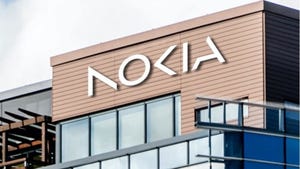Talk of a merger between Vodafone and Masmovil has resurfaced – and been denied – but market watchers in Spain remain convinced that consolidation is back on the agenda.
September 28, 2020

Talk of a merger between Vodafone and Masmovil has resurfaced – and been denied – but market watchers in Spain remain convinced that consolidation is back on the agenda.
Vodafone is exploring a buyout that could value Masmovil at €6 billion, El Economista reported late last week, citing unnamed sources. The report included a denial from Masmovil and Lorca Telecom, the vehicle being used by by private equity funds Providence, Cinven and KKR to manage the ongoing takeover and delisting of Masmovil; both parties said they had had no contact with Vodafone. Nonetheless, the paper ran with the story, noting that contact between the companies has come through financial intermediaries.
Vodafone on Monday unsurprisingly declined to comment.
The prevailing opinion in the Spanish press is that a new wave of consolidation could be just around the corner in Spain, but that Vodafone and Masmovil are not necessarily a great fit, despite the fact that a combination of their businesses would create a new clear leader in the mobile market, ahead of incumbent Telefonica’s Movistar, and a strong number two in fixed.
Together Vodafone and Masmovil had 19.83 million mobile customers at the end of May, according to the CNMC, over 3.5 million more than Movistar. Their combined fixed base stood at 4.83 million to the incumbent’s 5.89 million.
As El Espanol points out, one plus one does not always equal two. There is considerable overlap between Vodafone’s and Masmovil’s customer bases across both the fixed and mobile markets, and in converged services. The fixed market is further complicated by the fact that Masmovil is offering fibre-based services via wholesale agreement with Orange, while in mobile the pair would have more spectrum than allowed, although this could be a way for the regulator to allow in a new fourth player should it so desire. Or perhaps more accurately, should the EU so desire.
Speaking of regulators, things have changed in Spain recently. Cani Fernández took over as the new president of the CNMC in June and, as the papers note, has a pro-M&A stance, or at least believes market consolidation to be necessary, unlike her predecessor José María Marín Quemada. The change in personnel goes a long way to explain why the Spanish press is looking ahead to a new period of consolidation relatively soon after the last major market overhaul.
The Spanish mobile sector effectively came into being in its current form in 2016, when Masmovil acquired mobile network operator Yoigo from Telia and set about making a credible play to become the country’s fourth operator. There have been a number of acquisitions since then – most recently MVNO Lycamobile and its 1.5 million customers – and endless customer-attraction promotions, and Masmovil has emerged as a strong number four, dominating the market’s number portability statistics.
Competition is fierce in Spain, less than half a decade after Telia sold out, and we’re talking about the M&A merry-go-round once again.
Regional operator Euskaltel’s name keeps cropping up as a potential new fourth player. The telco – a fixed and TV player, and MVNO, whose roots are in Northern Spain – earlier this year announced plans to extend its presence nationwide under the Virgin brand. The operator said its aim is to reach the 85% of the Spanish market that it does not yet cover as part of a business plan for the next five years. The firm has declared itself the market’s fifth player, much like Masmovil tagged itself as Spain’s fourth national operator a few short years ago, and said it will operate as a value brand with competitive pricing.
Having seen the way Masmovil took the market by storm, you can forgive Spain’s existing national players for being spooked, Masmovil included.
While there is little of any substance in the reports emerging from the Spanish market at present, we find ourselves in a very familiar situation – history repeating itself, you could say – and talk of further consolidation seems like much more than just idle speculation.
About the Author(s)
You May Also Like








.png?width=300&auto=webp&quality=80&disable=upscale)


_1.jpg?width=300&auto=webp&quality=80&disable=upscale)


.png?width=800&auto=webp&quality=80&disable=upscale)